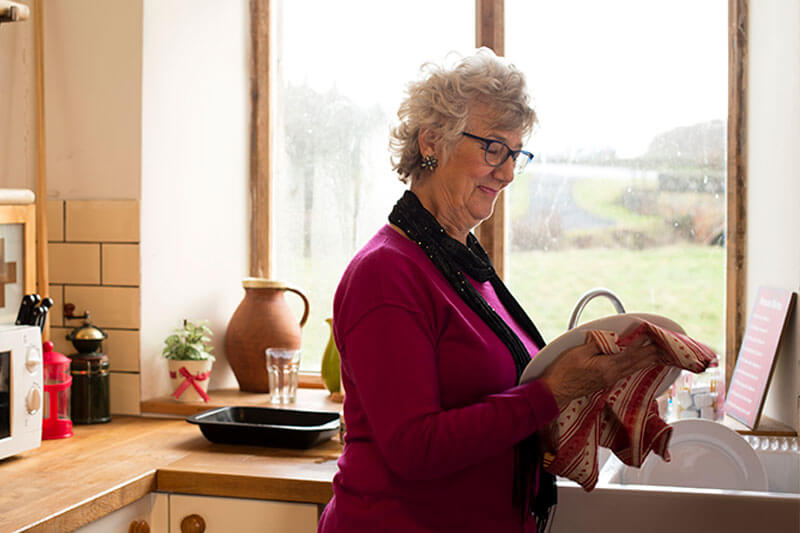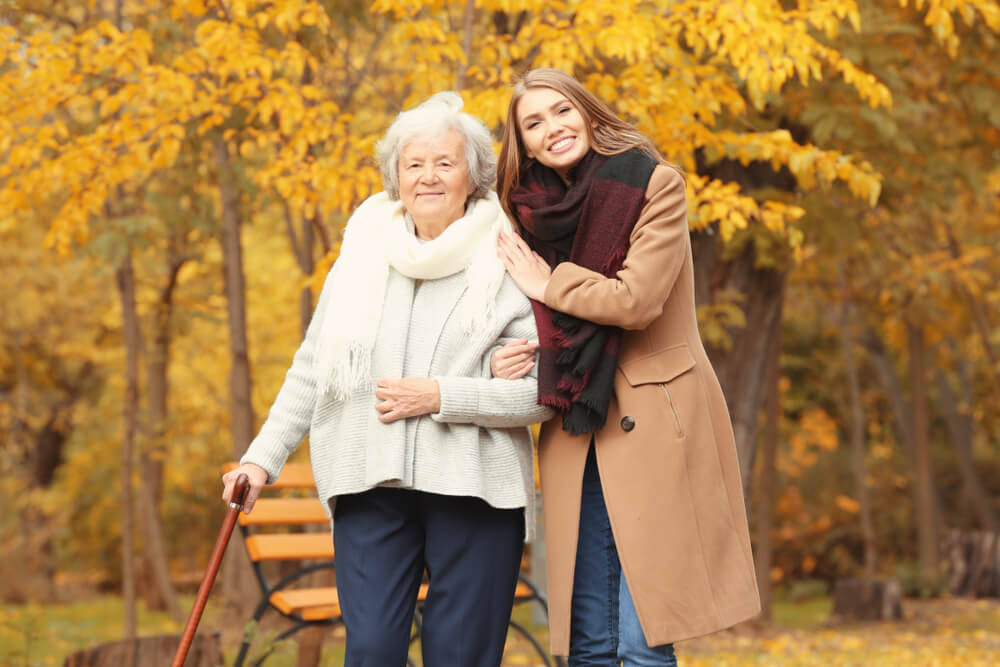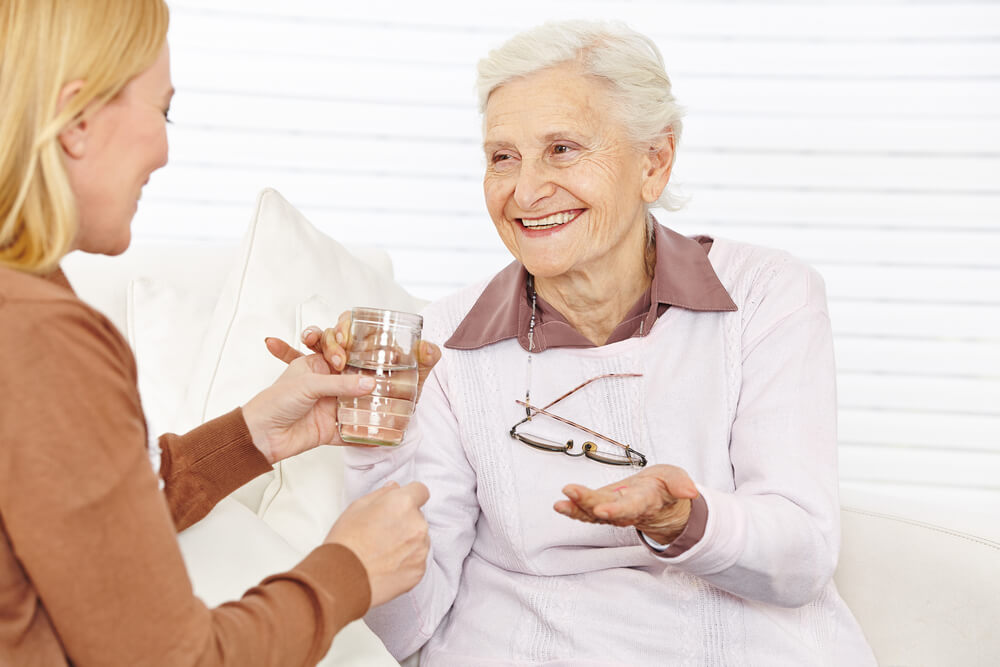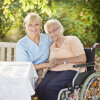Learn how to strike the right balance between senior safety and independence with these tips.
When an older loved one begins to show some symptoms of needing more help around the house, it can be easy to jump into problem-solving mode. The issue with this approach, however, is that we tend to want to “take over” for a loved one whom we think is struggling. In doing this, well-meaning family members may be causing more harm than good.
Consider this: You’ve twisted your ankle. It hurts to walk a bit, but you can still get around and do most things. Noticing your limp, your spouse jumps up and ushers you into a chair. He tells you not to move and that he’ll take care of everything. When you get up to go to the bathroom, he insists on holding your hand as you walk and hovers outside the door asking if you’re okay.
Your spouse’s intent is loving, but the effect can feel suffocating. This is a conflict that arises in many families when a senior loved one begins to need care. An overabundance of well-meaning help starts to push aside the equally important feeling of independence.
Independence is a huge part of a person’s self-worth, and it is important not to take that feeling away from senior loved ones. Keep these points in mind as a way to maintain balance between senior safety and independence:
- Keep your loved one’s rights in mind. If no cognitive issues prevent them from sound decision-making, remember that your loved one has the right to make his or her own decisions. You may disagree with those decisions, but discussing how to come to a common ground is key. If you feel strongly that Mom is compromising her safety in some way, talk to her about alternatives and let her decide on how she wants to proceed.
- Avoid ageism. Too often, ageism plays a role in our response to older loved ones. In general, our society has a negative view of aging, and that can bleed over into how we interact with aging loved ones. Instead of assuming that help is required in a certain area, be an onlooker for a while. See with your own eyes how Mom uses the stove or how well Dad can still work his power tools. From there, you can decide if a conversation needs to be had about safety.
- Talk things out. For all relationships, communication is key. When you have concerns, have a calm and open discussion with your loved ones. Keep an open mind when listening to their responses, and remember that you may not arrive at an agreement right away. Above all, let your loved ones know that you want them to be able to live life the way they want while staying safe and that you’re here to help them figure out the best solutions.
Helping older loved ones with senior safety and independence is a key goal for most family caregivers, and a great way to achieve that goal is by partnering with a trusted home care provider like Home Matters Caregiving. Our caregivers can develop care plans that allow for assistance where needed for improved health and safety while allowing for as much independence as possible. Contact us at 800-298-5140 to learn more about our in-home care services for older loved ones and to find out if they are available in your area.











